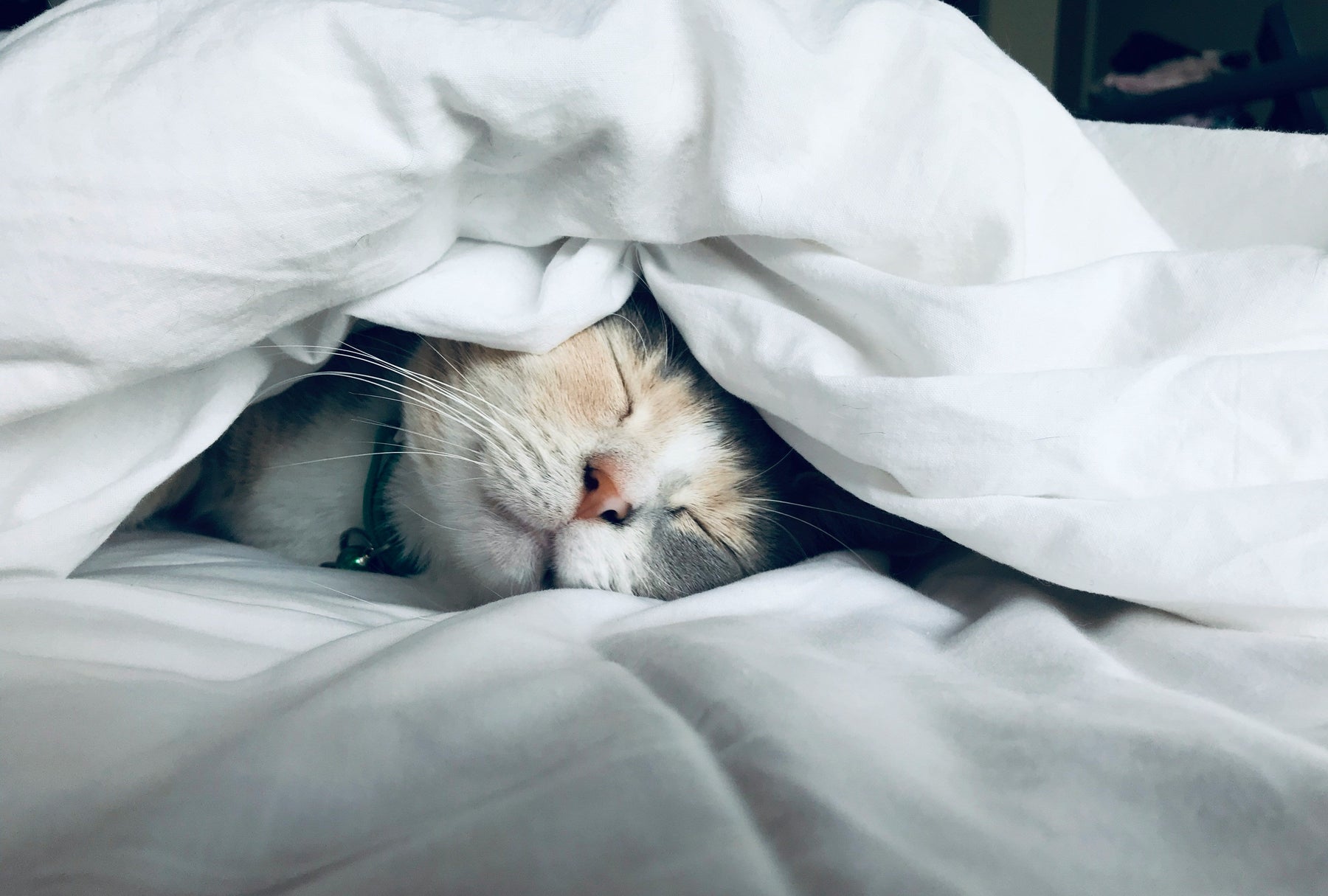Contactez-nous dès aujourd'hui

How Many Hours Of Sleep Do I Need? (It’s Not Always 8 Hours)
We’ve all grown up hearing that we need eight hours of sleep a night. It’s become something of a golden rule, repeated by parents, doctors, and wellness gurus alike. But here’s the truth: while eight hours is a good benchmark, it’s not a magic number that works for everyone. In fact, the amount of sleep you truly need can vary quite a lot depending on your age, lifestyle, and even your daily stress levels.
Let’s get into why the sleep you need might not look like the classic “8 hours” - and how to know what works best for you.
Where Did the 8-Hour Rule Come From?
The idea that we all need exactly eight hours of sleep likely started with early research that found most adults function well on somewhere between seven and nine hours per night. Naturally, eight became the average, and it stuck (mostly) because it’s easy to remember and easy to aim for.
But the thing is, we’re all different. Some people feel amazing on six and a half hours whereas others need closer to nine to function. That being said, there’s no “perfect” number that works for everyone, every single day.
How to Tell If You're Getting Enough Sleep
Rather than obsessing over the number of hours, it’s more useful to look at how you feel during the day.
If you wake up feeling refreshed (without pressing snooze five times), stay reasonably alert through the afternoon, and don’t crash at 7pm, you’re probably getting enough rest. But if you’re groggy in the morning, struggling to focus, snapping at people, or reaching for caffeine every few hours just to function - your body’s likely telling you something.
Another red flag? Falling asleep the second your head hits the pillow might seem like a talent, but it can actually be a sign that you’re not getting enough consistent rest.
How Many Hours Do You Really Need?
It depends!
Your age plays a big role. Babies need loads of sleep (up to 16 hours a day) because they’re growing rapidly. Teenagers need more sleep than you’d think (which explains those long lie-ins), and as adults, most of us settle somewhere between 7 and 9 hours.
But it’s not just about age. Your daily routine affects it too. If you’ve had a physically demanding day, you’re likely to need more rest. The same goes for stressful periods - your mind needs time to recharge. Illness or injury? That’ll likely mean more time in bed as your body works to heal. Even simple things like long screen time, changes in your diet, or disrupted routines can throw your sleep rhythm off.
Quality Matters Just As Much As Quantity
You could technically be in bed for 8 hours, but if you’re tossing and turning all night or waking up frequently, you’re not getting the deep, restful sleep your body needs.
Good sleep isn’t just about duration - it’s about depth and consistency. You want to spend enough time in the deeper stages of sleep (where real recovery happens), and avoid interruptions that jolt you awake or stop you from fully switching off.
And that brings us to something people often overlook: your sleep environment.
Your Bed Makes a Bigger Difference Than You Think
It’s easy to blame stress, kids, work, or late-night scrolling for bad sleep, and sure, those things don’t help. But one of the biggest reasons people struggle to get decent rest? Their bed.
If your mattress is too soft, too hard, sagging, or just not the right one for you, your body will let you know, usually by waking you up with a sore back, stiff neck, or restless legs. And if your bed feels cramped, noisy, or just not “right” for you, it affects how quickly you fall asleep and how long you stay there.
Upgrading your bed might seem like a big deal, but it’s one of the simplest ways to improve your sleep instantly. A supportive mattress, a divan base with proper alignment, and a comfy headboard that makes your bedroom feel inviting; it all adds up to a space that makes winding down easy.
Listen to Your Body, Not Just the Clock
Instead of counting hours, start paying attention to your body. Are you constantly tired even after a full night’s sleep? Do you find it hard to get through the afternoon without yawning? Or maybe you wake up feeling like you haven’t slept at all?
Your body is the best sleep expert you have. If it’s asking for more rest, give it permission to slow down. Whether that means going to bed earlier, making time for naps, or simply creating a better sleep environment, small changes can make a huge difference.
A Great Day Starts with a Great Night
At My Divan Bed, we believe that sleep should never be a struggle. Whether you need seven hours, nine, or something in between, your bed should help, not hinder, your rest. That’s why we offer a wide range of quality divan beds, mattresses, and headboards, designed with comfort and support in mind. The right bed won’t just change how you sleep - it’ll change how you feel every single day.
Explore our collection today and find the perfect bed to match your perfect sleep routine.
